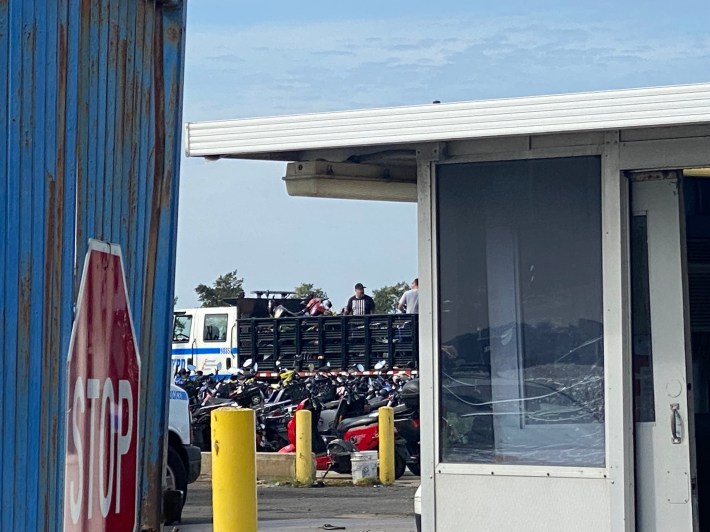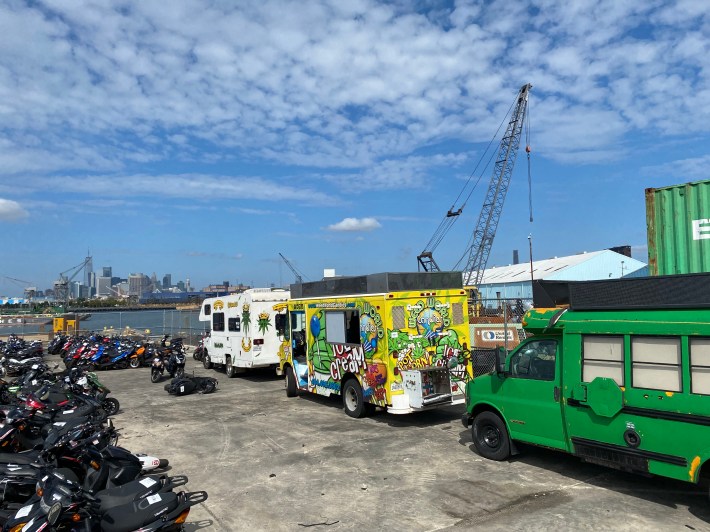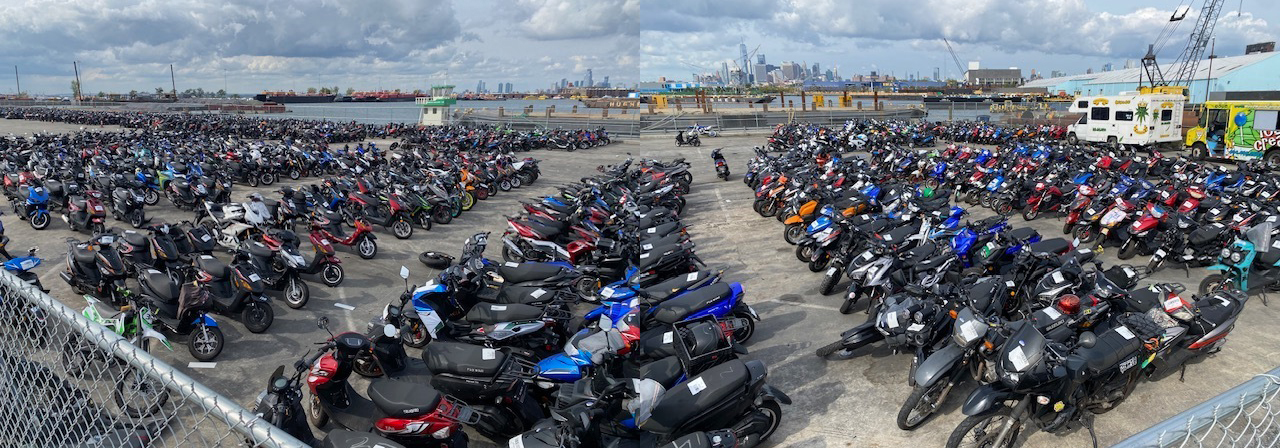The NYPD is seizing thousands of illegal mopeds from riders — many of them from newly arrived migrants or delivery workers ... even as they are in the middle of a food order.
Members of New York’s Finest were spotted at the Manhattan end of the Williamsburg Bridge bike path during the dinner hour on Wednesday night, ordering the riders of the illegal devices to step off and watch their wheels be taken.
Police seizing mopeds at the Williamsburg Bridge now pic.twitter.com/AyPQOGqban
— Liam Quigley (@_elkue) October 3, 2023
It's part of a concerted, aggressive and controversial effort by the NYPD to get illegal mopeds off the roads. Through Sept. 14 of this year, cops have seized 8,607 mopeds, more than double the 4,085 seized during the same period last year, according to the NYPD.
"Unregistered vehicles and non-street-legal devices not only violate the law but also risk the safety of their operators and all road users," said an agency spokesperson, who declined to provide a name or answer specific questions. "In response to citywide complaints, the NYPD conducted educational outreach efforts and issued warnings to address this complex challenge. Yet the conditions persist. The NYPD strives each day to ... work toward common-sense solutions to improve traffic safety and everyone’s quality of life."
Your 114 Precinct Officers were out at 31 St and Ditmars Blvd speaking with the community about traffic safety. pic.twitter.com/UQLu5cjvo5
— NYPD 114th Precinct (@NYPD114Pct) September 26, 2023
Streetsblog reported over the summer that many deliveristas have been turning to mopeds — which are required to have license plates issued by the Department of Motor Vehicles. Many delivery workers have switched from e-bikes to the heavier and faster vehicles amid a string of deadly blazes attributed to cheap lithium-ion batteries. Plus, their wages are largely linked to the speed at which they make their deliveries.

As such, advocates say the NYPD's seizures are a reactionary approach to a systemic problem that only continues to harm delivery workers.
"Delivery workers deserve safe and accessible transportation options that keep them and everyone on our streets safe," said Ligia Guallpa, the executive director of Worker's Justice Project. "The current street safety challenges are the symptom of systemic issues that can only be solved through strategic investments and a commitment to build an equitable transportation infrastructure. For delivery workers, street safety is workplace safety. [We are] committed to ... long-term, sustainable solutions that will both not hurt delivery workers' livelihoods or put pedestrians at risk."
The issue, though, is that many of the mopeds that workers are shifting to are illegal. The DMV requires that all motorized vehicles — including mopeds, cars, and trucks — be registered. But many consumers either purchase such a device from an unregistered brick-and-mortar dealer or an online retailer, or are not aware of the rules.
"Workers don't realize they need to have them registered and need to have a license and that they're not supposed to be ridden in bike lanes," said Melinda Hanson, the founder of urban mobility company Brightside, which is part of the Equitable Commute Project. "If we want to stop people from looking to acquire those vehicles, we need to do much more to make e-bikes attractive, financially accessible and more comfortable to ride in our cities."
Many asylum seekers who have just arrived in the city in pursuit of safety, shelter, and work, have turned to the delivery apps to make a living. And the NYPD is taking notice: Earlier this month, cops swarmed a migrant shelter elsewhere in Brooklyn, confiscating many mopeds and roughing up and arresting several men, the news website The City reported.
It’s unclear what the city has in store for the confiscated mopeds — stacked next to similarly seized, unlicensed mobile marijuana dispensaries — or whether any of their parts will be recycled, reused, or sold. But Mayor Adams made a big show of crushing them under bulldozers last year.

Meanwhile, the Department of Consumer and Worker Protection has also been working the case, albeit by cracking down on retailers who are selling the illicit two-wheeled devices.
The DCWP says it has inspected 235 stores across the city in the month since the effective date of Local Law 39 — which prohibits the sale of batteries that are not approved by the nationally recognized UL Solutions (Underwriters Laboratories). The agency says its inspectors are searching not only for the illegal batteries, but also illegal mopeds, and have issued violations to 69 businesses for battery noncompliance, issued cease-and-desist letters to 34 online retailers — including Amazon — and slapped 23 businesses with separate violations for selling illegal mopeds. The violations currently carry no financial penalty, but they will eventually. The DCWP is not authorized to confiscate property or shut down a business, a spokesperson said.
"We will issue summonses and refer issues to NYPD and FDNY as appropriate," Department of Consumer and Worker Protection spokesperson Michael Lanza previously told Streetsblog.






